Meet 18 New Stadtman Investigators
Taking on Today’s Scientific Challenges
Inventing new ways to thwart viruses and treat diseases; developing early-detection methods for cancer; investigating the connection between neural circuitry and obesity; finding ways to reduce health disparities. These are just some of the challenges that the Earl Stadtman Tenure-Track Investigators have taken on.
The Stadtman program, a trans-NIH search process that began in 2009, is named for renowned biochemist, senior investigator, and mentor Earl Stadtman (1919–2008), who devoted his 57-year career at NIH to identifying the mechanisms of cellular energy expenditure and metabolism. The program crosses all areas of biomedical research and is designed to attract a diverse group of talented early-career scientists who might not apply to NIH via searches conducted by individual institutes and centers.
Meet the 18 Stadtman Investigators who were part of the 2019 recruiting cycle. For more on the Stadtman program, how to apply, and links to stories about other Stadtmans, go to https://irp.nih.gov/careers/trans-nih-scientific-recruitments/stadtman-tenure-track-investigators.
Mustapha Bouhrara, Ph.D., NIA
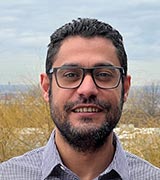
Magnetic Resonance Physics of Aging and Dementia Unit, National Institute on Aging
https://irp.nih.gov/pi/mustapha-bouhrara
Research: Developing advanced magnetic-resonance imaging (MRI) acquisition and analysis methods for quantitative and specific neuroimaging of biomarkers of cerebral tissue microstructure and function; studying aging and age-related neurodegenerative diseases.
Became Stadtman Investigator in 2020.
Adrienne Campbell-Washburn, Ph.D., NHLBI
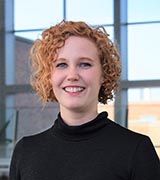
MRI Technology Program, National Heart, Lung, and Blood Institute
https://www.nhlbi.nih.gov/science/mri-technology
Research: Developing novel MRI technology for cardiac imaging, lung imaging, and MRI-guided cardiovascular catheterization procedures. Translating new methods to clinical applications through collaboration with interventional cardiologists, imaging cardiologists, pulmonologists, radiologists, and critical-care physicians.
Became Stadtman Investigator in 2020.
Ross Cheloha, Ph.D., NIDDK

Acting Section Chief, Chemical Biology in Signaling Section, Laboratory of Bioorganic Chemistry, National Institute of Diabetes and Digestive and Kidney Diseases
https://www.niddk.nih.gov/about-niddk/staff-directory/biography/cheloha-ross
Research: Developing new methods and tools for the study of biomolecules, with a focus on designing new compounds for targeting cell-surface receptors; particularly interested in the preparation of conjugates that consist of synthetic molecules and proteins.
Became Stadtman Investigator in 2020.
Bobby Cheon, Ph.D., NICHD

Social and Behavioral Sciences Branch, Division of Intramural Population Health Research, Eunice Kennedy Shriver National Institute of Child Health and Human Development
https://irp.nih.gov/pi/bobby-cheon
Research: Investigating the health impacts of psychological experiences associated with disparities, such as discrimination, low perceived social status, and economic and resource insecurities; examining contributions of such psychosocial factors to eating behaviors, food preferences, and diet-related chronic diseases such as obesity.
Became Stadtman Investigator in 2021.
Megan Clarke, Ph.D., M.H.S., NCI-DCEG

Clinical Genetics Branch, Division of Cancer Epidemiology and Genetics, National Cancer Institute
https://dceg.cancer.gov/about/staff-directory/clarke-megan
Research: Combining molecular, clinical, and population-based approaches to address etiology, prevention, and early detection of cervical, endometrial, and anal cancers.
Became Stadtman Investigator in 2020.
Allana T. Forde, Ph.D., M.P.H., NIMHD

Epidemiology and Genetics Research Area, National Institute on Minority Health and Health Disparities
https://irp.nih.gov/pi/allana-forde
Research: Examining the impact of race-related stressors (such as discrimination) on cardiovascular health across the life course, with a focus on African American, Afro-Caribbean, and Afro-Latinx people; exploring biological mechanisms through which discrimination affects cardiovascular health; identifying protective and adaptive factors that could inform interventions.
Became Stadtman Investigator in 2020.
Luis M. Franco, M.D., NIAMS
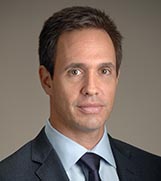
Functional Immunogenomics Section, National Institute of Arthritis and Musculoskeletal and Skin Diseases
https://www.niams.nih.gov/labs/franco-lab
Research: Working at the intersection of clinical medicine, human immunology, genomics, and bioinformatics to understand how genes control the function of cells in the human immune system and how treatments that change the expression of human genes affect the behavior of immune cells; enabling the development of better treatments for human diseases that are caused by an overactive immune system.
Became Stadtman Investigator in 2019.
Meng-Meng Fu, Ph.D., NINDS

Special Volunteer, Glial Cell Biology Unit, National Institute of Neurological Disorders and Stroke
https://research.ninds.nih.gov/staff-directory/meng-meng-fu-phd
Research: Studying the cell biology of oligodendrocytes (a type of glial cell in the central nervous system) to better understand normal myelin development as well as demyelinating and neurodegenerative diseases.
Became Stadtman Investigator in 2020; left NIH in January 2023 to become Assistant Professor in the Department of Molecular and Cellular Biology, University of California at Berkeley (Berkeley, California).
Thomas Gonatopoulos-Pournatzis, Ph.D, NCI-CCR
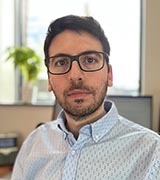
Stadtman Investigator and NIH Distinguished Scholar, RNA Biology Laboratory, Center for Cancer Research, National Cancer Institute
https://ccr.cancer.gov/staff-directory/thomas-gonatopoulos-pournatzis
Research: Studying the regulatory pathways and functional roles of alternative splicing and other pre-mRNA processing events in mammalian cells; characterizing alternative splicing programs that underlie phenotypes related to normal physiology and disease states.
Became Stadtman Investigator in 2020.
Leah Katzelnick, Ph.D., NIAID
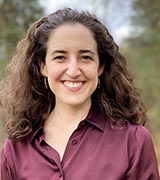
Chief, Viral Epidemiology and Immunity Unit, National Institute of Allergy and Infectious Disease
https://www.niaid.nih.gov/research/leah-c-katzelnick-phd-mph
Research: Using a multidisciplinary approach encompassing virology, immunology, and epidemiology to investigate protection against and susceptibility to emerging viruses; informing safe and effective deployments of vaccines; working with dengue as a model pathogen for other complex, immune-evasive viruses.
Became Stadtman Investigator in 2020.
Erikka Loftfield, Ph.D., NCI-DCEG

Metabolic Epidemiology Branch, Division of Cancer Epidemiology and Genetics, National Cancer Institute
https://dceg.cancer.gov/about/staff-directory/loftfield-erikka
Research: Studying the interplay between diet, metabolism, the microbiome, and genetics, and their effects on cancer risk; leveraging developing technologies to improve dietary assessment and gain insights into diet-cancer associations.
Became Stadtman Investigator in 2020.
Andrew Lutas, Ph.D., NIDDK
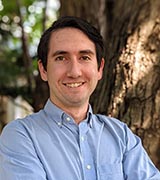
Acting Section Chief, Neuromodulation and Motivation Section, Diabetes, Endocrinology, and Obesity Branch, National Institute of Diabetes and Digestive and Kidney Diseases
https://irp.nih.gov/pi/andrew-lutas
Research: Understanding the principles of neuromodulation of brain circuits that control motivation; uncovering treatment strategies for obesity and comorbid diseases.
Became Stadtman Investigator in 2022.
Leonardo Mariño-Ramírez, Ph.D., NIMHD
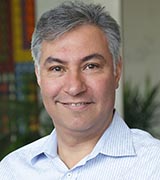
Epidemiology and Genetics Research Area, National Institute on Minority Health and Health Disparities
https://irp.nih.gov/pi/leonardo-marino-ramirez
Research: Analysis of genetic ancestry and electronic health records in large biobank cohorts to characterize how genetic and environmental risk factors interact to influence health disparities.
Became Stadtman Investigator in 2020.
Doreen Matthies, Ph.D., NICHD

Unit on Structural Biology, Eunice Kennedy Shriver National Institute of Child Health and Human Development
https://www.nichd.nih.gov/research/atNICHD/Investigators/matthies
Research: Using a combination of molecular biology, biochemistry and biophysical methods with a focus on cryoelectron microscopy to study the structure and function of membrane protein complexes in their native lipid membrane environment; understanding how various microenvironments are formed and maintained, and how they influence the structure and function of membrane proteins.
Became Stadtman Investigator in 2020.
Yekaterina Miroshnikova, Ph.D., NIDDK
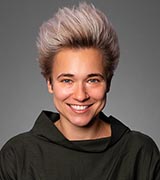
Acting Section Chief, Section on Nuclear Mechanotransduction and Cell Fate Dynamics, Laboratory of Molecular Biology, National Institute of Diabetes and Digestive and Kidney Diseases
https://irp.nih.gov/pi/yekaterina-miroshnikova
Research: Using cutting-edge, interdisciplinary approaches to understand the role of nuclear mechanotransduction in modulating genome architecture and gene expression patterns to tune stem-cell fate.
Became Stadtman Investigator in 2021.
Matthew Wolf, Ph.D., NCI-CCR
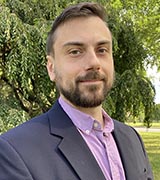
Head, Cancer Biomaterials Engineering Section, Cancer Innovation Laboratory, Center for Cancer Research, National Cancer Institute
https://irp.nih.gov/pi/matthew-wolf
Research: Designing complex 3D tumor models and next-generation cancer immunotherapies using a multidisciplinary combination of biomaterials science, cancer immunology, and tissue engineering.
Became Stadtman Investigator in 2020.
Colin (Chih-Chien) Wu, Ph.D., NCI-CCR

Head, Translational Control of Gene Expression Section, RNA Biology Laboratory, Center for Cancer Research, National Cancer Institute
https://ccr.cancer.gov/staff-directory/colin-wu
Research: Exploring the role of the ribosome in stress-response signaling pathways and translational regulation in mammalian systems; using an integrated approach that combines mass spectrometry, CRISPR screens, high-throughput chemical probing, ribosome profiling, biochemical techniques, and computational tools.
Became Stadtman Investigator in 2020.
Ryan Young, Ph.D., NCI-CCR
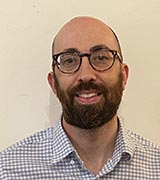
Ryan Young, Ph.D., NCI-CCR
Lymphoid Malignancies Branch, Center for Cancer Research, National Cancer Institute
https://irp.nih.gov/pi/ryan-young
Research: Using cutting-edge proteogenomic techniques, high-resolution microscopy imaging, and biochemical approaches to elucidate molecular mechanisms underlying oncogenic signaling in multiple myeloma (MM); finding new opportunities for the targeted treatment of MM by exploiting druggable pathways.
Became Stadtman Investigator in 2020.
This page was last updated on Thursday, March 16, 2023
